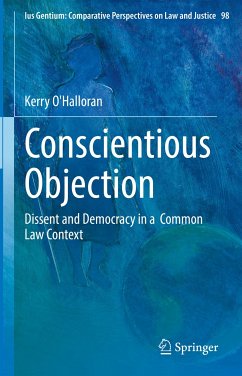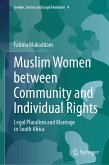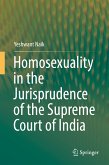It considers the impact of this form of dissent in relation to social movements like Black Lives Matter, social activists such as Gandhi, and whistle blowers like Daniel Ellsberg. It reflects on the relationships between the sacred and the secular, the state and the citizen, in order to better understand the responsibilities of citizenship in our increasingly secular societies. It analyses what defines the conscientiousness of an objection from both legal and ethical standpoints. It examines what constitutes a matter of conscience, why this should justify exemption from civic duties and why this form of dissent has such a time-honoured status. It explores the increased reliance on "grounds of religion, belief or conscience" as providing justification for excusing some citizens from complying with certain responsibilities - mandated by equality and non-discrimination legislation - that are binding for all others.
By conducting a comparative evaluation of national law and judicial rulings on a fixed agenda of issues, this book identifies key jurisdictional differences concerning conscientious objection. In so doing, it highlights the importance of cultural context and constructs a jurisdiction-specific overview of legislation, policies and case law. By tracking policy developments and highlighting crucial judicial rulings - particularly in the US - it provides insights into the probable future direction of developments in national law relating to conscientious objection.
Lastly, the book draws attention to some of the potential consequences of manifesting dissent by opting out of performing public services - e.g. the possible local breakdown of specific service availability (e.g. abortion, officiating at same-sex marriages, and immunisation); prompting population movements as established democratic civil rights are locally negated (reproductive rights, LGBT rights, right to health protection); fragmenting society into a geographic patchwork of regions in which some citizens are branded as conservative/reactionary and others as progressive; and fuelling the culture wars - with profound implications for a coherent democratic society.
Dieser Download kann aus rechtlichen Gründen nur mit Rechnungsadresse in A, B, BG, CY, CZ, D, DK, EW, E, FIN, F, GR, HR, H, IRL, I, LT, L, LR, M, NL, PL, P, R, S, SLO, SK ausgeliefert werden.









